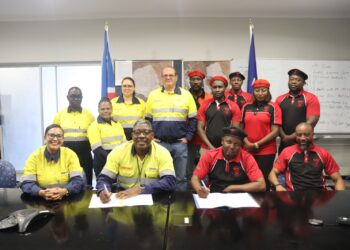
Policymakers and the education fraternity should develop the necessary skills to avoid a widening inequality gap in the future due to the discovery of oil, founder of Ombu Capital, Vetumbuavi Mungunda has said.
Mungunda said Namibia suffers from a lack of sectorial know-how and a huge skills mismatch resulting in high unemployment and poverty rates.
He highlighted that with the promising economic reforms and projects, there is a need for up-skilling, while the government works towards creating opportunities to boost economic growth.
“Namibia already has a history of high inequality rate, and we have seen in countries where oil is discovered and produced there is a correlation in inequality. Therefore, for us to avoid this gap increasing, we need to plan differently, hence in the next five years we need to develop skills that match the industry and localise them, or else we are going to see imported expertise, and this includes the green hydrogen sector. Thus, we need a national coordination and proper transitional plan for short, medium and long term,” Mungunda said.
According to the latest rating by the World Bank, Namibia has a 59.1 rate of inequality on the Gini Coefficient, this is despite showing a slight decrease from 61.0 in 2010 and 63.3 in 2004.
In addition, Mungunda said more robust reforms need to be crafted, considering that Namibia’s economy performed poorly recording a 0.4% growth in the last five years, and an overall 1.5% in the last 15 years.
“We have not had any significant growth in more than a decade. What could be lacking and challenging is, skills, which play an integral part for any economy,†he said.
“It is proven that productivity and skills are a necessity because looking at Malaysia and Singapore, these countries have no resources compared with what we have, but their growth rate cannot be compared to ours. Therefore, we need to make structural changes to suit the current dynamic, so that we can add value to what we export and be skilled in a specific area.
“If we are skilled in a sector that becomes very resourceful and positions us to be competitive. We also need to improve and develop a formal transitional programme, where graduates can be trained further to become experts in the field and gain deep practical knowledge so that they can do more than just securing a job. Once that is mastered, we should be in the right direction. For instance, this is the time that our welders can be trained on how to operate in a highly intensive industry such as that of oil and gas because their current knowledge does not align with the scope of work in that sector,” the former Standard Bank CEO added.
Namibia made notable oil discoveries since 2022 with an estimated 11 billion barrels, from various wells of Graff-1X, Venus-1X, Jonker-1X, and Lesedi-1X. These discoveries are the product of partnerships involving major industry players such as Shell, Qatar Energy, Total, and Impact, in conjunction with NAMCOR.
Mungunda spoke at the Skills for Trade and Economic Diversification Workshop, organised by the Namibia Investment Promotion and Development Board, in conjunction with the United Nations, where he further stressed that Namibia still has more work to do, before jumping to the fourth and fifth industrial revolutions.
He said the country still finds itself in the pre-industrial phase of agrarian, hence the agricultural sector can make a major impact in the attainment of other industrial revolutions, but only when it has been conquered fully and is able to feed its people and export. –https://miningandenergy.com.na/











